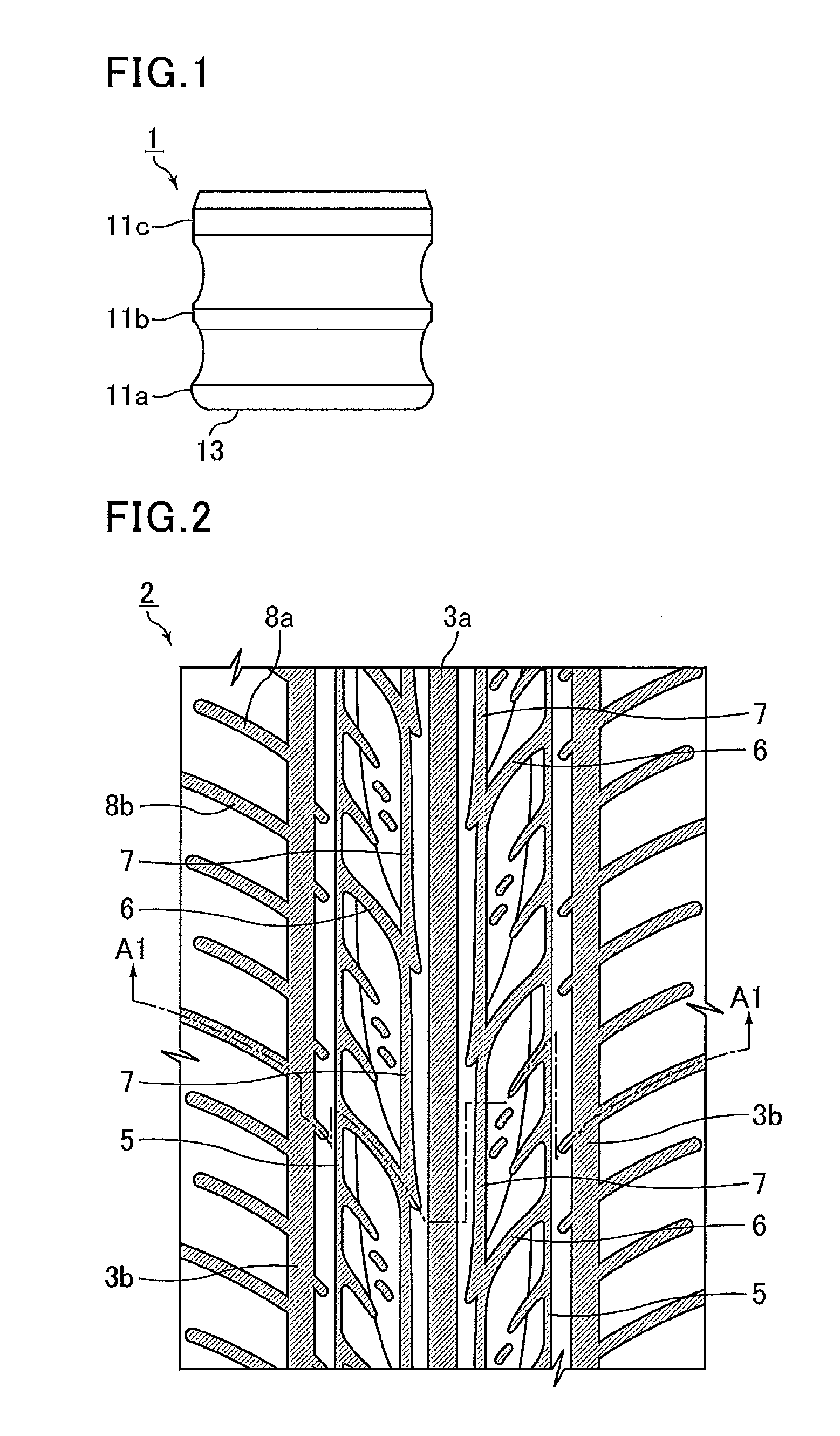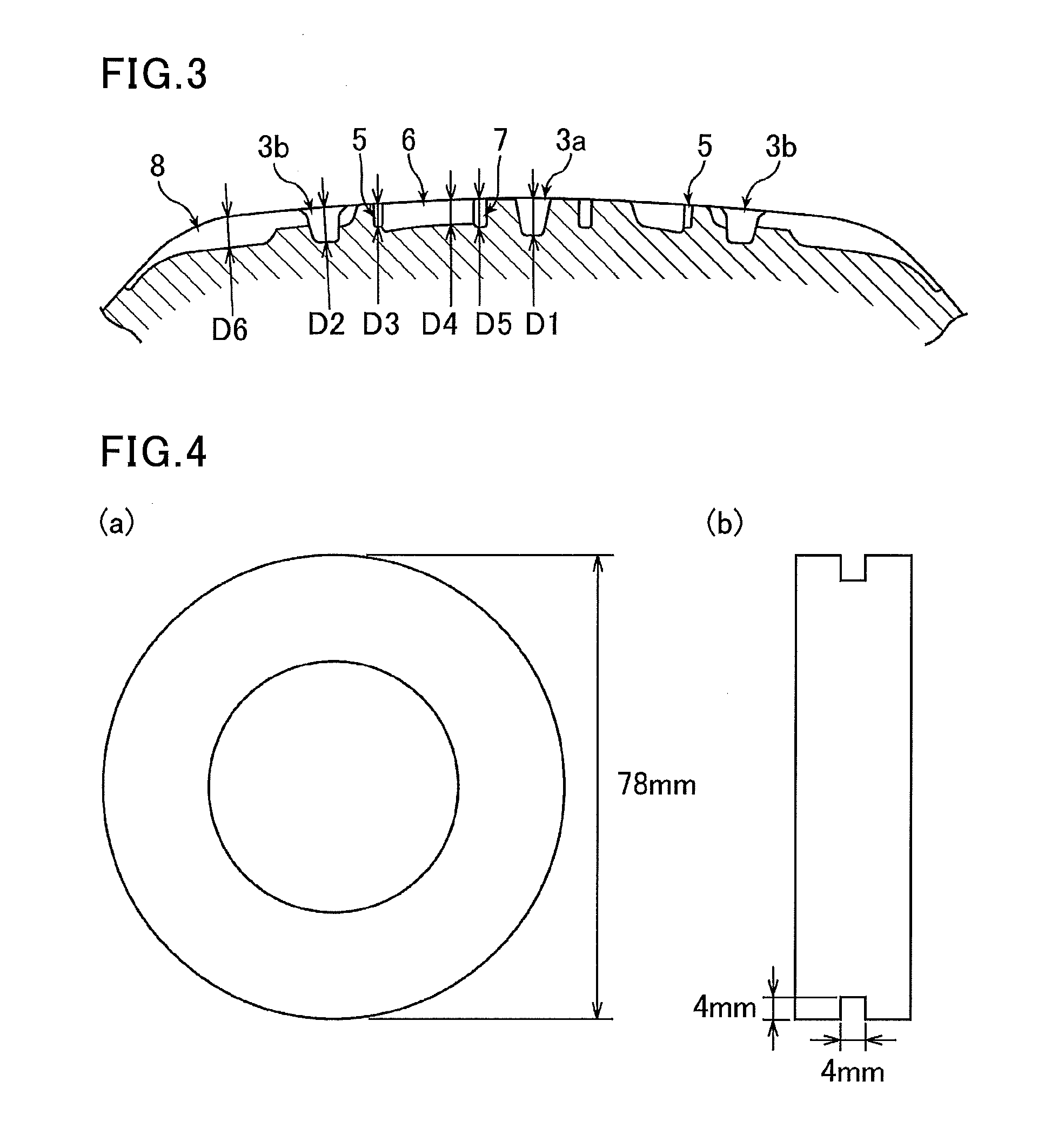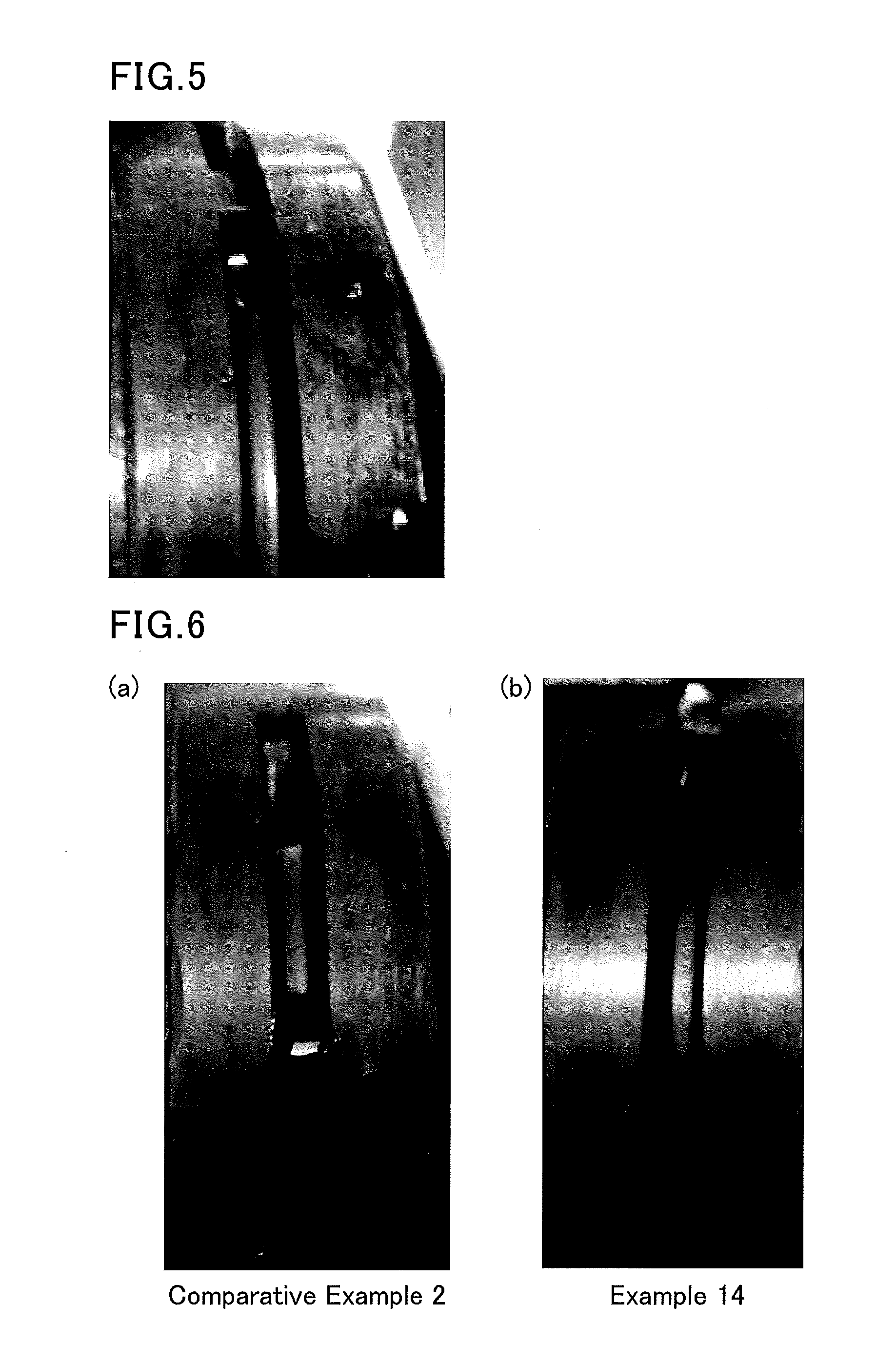Surface-modifying method and elastic body with modified surface
a surface modification and elastic body technology, applied in the field of surface modification methods, can solve the problems of poor sliding properties of gaskets to which no sliding property improvement agent is applied, silicone oil may have a negative influence on recently marketed bio-preparations, and the elastic body has a slight sliding property problem, etc., to achieve the effect of enhancing the sliding properties of the sliding surface thereof, less pressure loss, and improving the noticeability of road signs or signboards
- Summary
- Abstract
- Description
- Claims
- Application Information
AI Technical Summary
Benefits of technology
Problems solved by technology
Method used
Image
Examples
example 1
[0144]A chlorobutyl rubber (degree of unsaturation: 1% to 2%) containing isoprene units was crosslinked using triazine to give a rubber vulcanizate (vulcanized at 180° C. for 10 minutes). The rubber vulcanizate was immersed in a 1 wt % solution of benzophenone in acetone so that benzophenone was adsorbed onto the surface of the rubber vulcanizate. Then, the rubber vulcanizate was taken out and dried.
[0145]The dried rubber vulcanizate was immersed in an aqueous solution of 3-sulfopropyl methacrylate potassium salt in a glass reaction container, and was irradiated with ultraviolet light using an UV lamp (8 W) having a wavelength of 365 nm for 5 hours to perform radical polymerization. Thereby, polymer chains were grown on the rubber surface. In this manner, a surface-modified elastic body (polymer brush) was obtained.
example 2
[0146]A surface-modified elastic body was prepared in the same manner as in Example 1, except that 3-sulfopropyl methacrylate potassium salt was changed to 2-methacryloyloxyethyl phosphorylcholine.
example 3
[0147]A chlorobutyl rubber (degree of unsaturation: 1 to 2%) containing isoprene units was crosslinked using triazine to give a rubber vulcanizate (vulcanized at 180° C. for 10 minutes). The rubber vulcanizate was immersed in a 1 wt % solution of benzophenone in acetone so that benzophenone was adsorbed onto the surface of the rubber vulcanizate. Then, the rubber vulcanizate was dried. Subsequently, the surface of the rubber vulcanizate was irradiated with an UV lamp (8 W) having a wavelength of 365 nm for 30 minutes to allow the benzophenone to chemically bond to the surface. Thereafter, the surface was washed with acetone to remove unreacted benzophenone.
[0148]The dried rubber vulcanizate was immersed in an aqueous solution of 3-sulfopropyl methacrylate potassium salt in a glass reaction container, and was irradiated with ultraviolet light using an UV lamp (8 W) having a wavelength of 365 nm for 3.5 hours to perform radical polymerization. Thereby, polymer chains were grown on the...
PUM
| Property | Measurement | Unit |
|---|---|---|
| wavelength | aaaaa | aaaaa |
| length | aaaaa | aaaaa |
| temperature | aaaaa | aaaaa |
Abstract
Description
Claims
Application Information
 Login to View More
Login to View More - R&D
- Intellectual Property
- Life Sciences
- Materials
- Tech Scout
- Unparalleled Data Quality
- Higher Quality Content
- 60% Fewer Hallucinations
Browse by: Latest US Patents, China's latest patents, Technical Efficacy Thesaurus, Application Domain, Technology Topic, Popular Technical Reports.
© 2025 PatSnap. All rights reserved.Legal|Privacy policy|Modern Slavery Act Transparency Statement|Sitemap|About US| Contact US: help@patsnap.com



